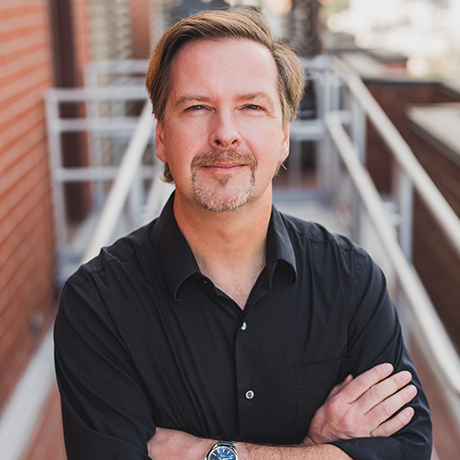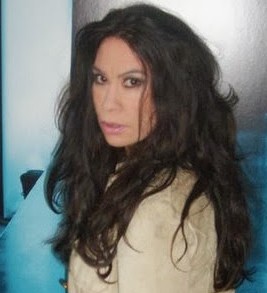
My Happiness Hypothesis study found that modern dating is creating the dating paradox effect: it’s giving off the illusion of many choices while making it harder to find viable options. Is technology driving dating, sex, and emotion? Are dating patterns just an extension of how we behave on social networks? I had a chance to explore some of this phenomena with the one and only Grant Langston, CEO of eharmony.
Your career is so fascinating and inspiring. Tell us about your career trajectory?
The word “trajectory” suggests some kind of uniform direction, but my career has been anything but uniform. What I do every day now did not exist when I was in college, so it’s safe to say that I never dreamed that I would be the CEO of eharmony, a pioneer in online dating.
So, how did it happen? I actually moved to Los Angeles to play music at 21. I’ve always been musically inclined, singing in church choir at age 6, playing trombone at age 9, learning guitar at 10, and even starting my first band at 12. Music had become my obsession. While law was a recommended career path for me, studying political science at Auburn University, I ultimately spent most of my time writing music and playing in bands.
After graduation, I made one of the biggest and best decisions of my life… and I moved to California to forego a career in law and follow my passion for music. Fast forward 10 years of working dreary day jobs and playing music at night, and a wise psychologist urged me to not settle for that day job.
This one hour changed my life significantly.
As I started to look for real work there was a person I knew from music who ran an advertising agency, Sandy Kaye. I told her what I was doing and she said, “I think you would be a good copywriter.” I barely knew what copywriting was, but I started slowly and she helped me immensely. Again, my life changed overnight.
I began creating TV and radio advertising, which was fun and difficult. But most importantly, I loved it. After a few years, I got a call from a friend who asked me if I was willing to come and help a start-up with some marketing and copywriting. That company was eharmony.
Over the next 15 years I pretty much did every non-technical job in the company, mostly in content, social media, and marketing. And, in July of 2016, the board asked me to be the chief executive officer.
How did you get started in the relationship industry? What got you interested in the industry?
Before I joined eharmony, it was hard to believe that the industry was capable or interested in helping people. My perception quickly changed once I started to see, and even meet, the couples we were creating. During the first TV shoot we did, I got to speak with the couples we were matching, and I was sold.
eharmony was putting people together who were so well-matched, and who would have never found each other otherwise.
Of course, over the years, I’ve gotten to watch these relationships evolve and grow, which just reemphasizes how well they were matched. To be involved with something that was so significantly impacting people’s lives has been fulfilling, to say the least. It is something that I’ve been proud to play a role in for 20 years now.
What amazing projects can we expect to see next under the Parship acquisition?
Right now, we’re just putting the two companies together. As you can imagine, it is a major undertaking to involve teams working between Hamburg and Los Angeles. If I could guess, we’re looking at about a year of work to complete these changes.
I have been predicting a greater use of AI in dating apps for years, now. It plays a role in things that we use every day, i.e., Google and facebook, yet it scares people. What in your opinion is the future of dating?
One thing is certain: nobody benefits from the development of features that people find creepy or unnerving.
However, as long as consumers feel safe, artificial intelligence and other kinds of technology can make online dating more accurate and effective in specific ways.
In terms of the future of dating, while I’ve seen presentations on the integration of DNA matching into an online dating setting, for example, I’m skeptical of people’s willingness to provide samples.
I applaud you on your recent research findings. I often don’t see independent studies being conducted to better understand consumer trends and need. Will these findings inform future market expansion and new market entry?
Thank you! For eharmony’s Happiness Index, we focused on relationships and the attitudes of people within them. It helps us improve the matching we do and the questions we ask, but there aren’t any immediate and clear market opportunity based on this work.
How do you create work-life balance? Can you share some tips on how to cultivate it in our own lives?
First off, just having the opportunity to build a work-life balance is a kind of miracle. In years past, the idea that you might leave work and go exercise during lunch would have been laughed out of the room. Everyone was sitting at their desks smoking cigarettes! The way you proved your loyalty to the company and your work ethic was to sit in your chair and work…a lot. This was bad for productivity, bad for morale, bad for health, and bad for family life.
One of the best changes in modern work is that it is acceptable to honor your family responsibilities. It’s acceptable to take care of your health. So, all you have to do to have a work-life balance is to reach out and take it.
I have just made some decisions about my life. I have small children, and I want to have dinner and see them before they go to bed. That becomes sacred. Of course, many nights I open up the laptop after they go to bed, and I’m willing to do that to compensate for leaving work earlier than I might have 20 years ago.
Exercise is vital. Who wants to work and save money for retirement only to be in such poor health that they can’t enjoy it? Several days a week I get up at 5:30 am so I can swing by the gym and work out. That’s a long day, but I’m so used to it now that I don’t notice the extra hours. You have to decide that you want it and that you’re not going to give up on it. That’s the key to having the balance you need.
Lastly, the best way to have a healthy work-life balance is to REALLY contribute when you’re working. Focus on it and really give it all you have. If you do, when you need to step away you can do that completely and the chances you’ll get that space from your job become more likely.
What would you tell your younger self?
This question is always so unfair, because from this perspective I can see, things often pan out the way you want them to be. Although, that wasn’t always clear in my 20’s and 30’s, and so I would urge my younger self to worry less and continue to make wise choices.
The best advice I can give for someone who feels that they aren’t on the path they want is this: Look for the ground floor of the opportunity you want.
If you want to work in marketing for a tech company, start by looking for a marketing role in the sector you may not be as interested in. Get your foot in the door, any door, and start providing value for that business. Be a relentless contributor with a great attitude, and opportunities will arise. You’ll be able to leave with experiences that apply to the next job.
Organizations are constantly seeking people that take work seriously and understand the broader business perspective. Be that person.

